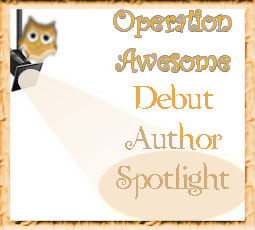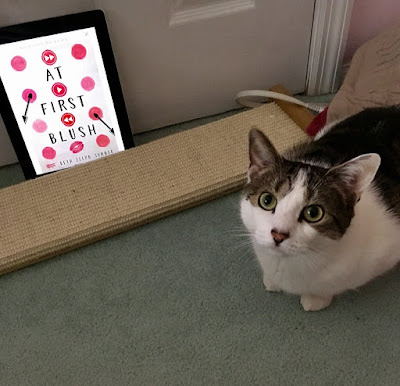
Cutting to the Chase
1- I see you have some interviews on your blog (rosephillipsya.blogspot.ca). Do you make those images yourself?I wanted to have my own twist to interviews and I thought a more interesting visual display might be appealing. I work with the app FotoRus. It’s a little time consuming but fun.
2- Can you share a story from your life that shows who you are as a person and why you are a writer? My teen years were spent in an outport in Newfoundland. An hour to school by bus meant not only a lot of time to kill on the road, but also that most of my friends lived too far away for weekend socializing. So life was fairly insular and books were my escape. One of my favourite authors when I was in my mid-teens was Mary Stewart. I devoured her books and when I read the second in her Merlin series, I was disappointed that it was over. So I wrote her and told her that. Now this was in the day and age of snail mail so fangirling took a lot of effort and time. My mother didn’t think I’d ever hear back from an author in Scotland, but I did. I was thrilled to find out that there would be a third book for the series and over the moon that she took the time to write. At that point in time I was dabbling in writing Harlequin style stories (another addictive discovery in my teens) and I swore that if I ever managed to become a writer, I would be as kind and approachable as Mary Stewart. It meant so much to me, I still have the letter almost forty years later.

Oh, you certainly do your research! The only cheese I’ve ever met that I didn’t like is blue cheese. Other than that, bring it on.
4- If someone knows someone who self-harms, what's the best way to offer help?Be there for them. Period. In any way they want. Let them know you care, that you are not judging, that you hear them. The urge is to fix but unless you’re a trained psychologist, that’s probably not going to be within your realm of expertise. Nobody harms themselves for a good time. There’s a lot of pain bottled up inside. Give them an alternative outlet by listening. I’ve had so many students tell me their stories for the simple fact that I was willing to hear them. And talking about it, is the first step to learning how to manage it.
5- Who is currently your biggest fan? What does that person love most (or "ship") about your debut novel?There is no greater fan than my husband. He has been beside me, encouraging me, every step of this writing journey. He read my first version which was written in third person point of view. He patiently re-read it when I rewrote it in first person. He’s a grammar guru and is tremendously helpful when he reads. He thinks it’s amazing that I have stuck with it and never given up. And he loves the little glimpses of things that happened in real life. Only he knows which moments they are. It’s like our own little secret about the novel.
6- Would you share a picture with us of your dogs posing with your book?
Spice is more into reading than Ginger.

 7- What are some of your short and long term writing goals?
7- What are some of your short and long term writing goals?I’ve just finished the first draft of my second YA and I have a third one started in bits and bites. Both are connected to Cutting to the Chase but it’s not a series. All three are stand-alones. I have also drafted an outline for a 4th YA novel that is not connected to these in any way. For long-term goals, I want to get back to writing historicals. I’ve grown as a writer and I want to revisit/revise Raven’s Path, the historical adventure I penned after reading Outlander. Because it’s laden with historical detail, I’m hesitant to mess with it until I can focus on it 100 percent. I’ll wait until my YAs are in good shape before venturing into that manuscript or writing more historically-based novels.
8- What emotions do you hope your book will evoke for the reader, and is there a particular scene you hope will resonate with readers? Ultimately, this is a story about hope. If readers who hurt themselves can feel that it is possible to climb out of a dark hole, then this story has done its job. Readers who have someone in their lives who cuts tell me that they feel they now “get it” in a way they didn’t before. I hope that will also be helpful as they walk alongside those in pain. A particular scene? Well, without giving too much away, I hope the scene where Lizzy hits bottom accomplishes both things I have mentioned.
9- What most helped you to improve your writing craft?Practice and feedback. I read craft books but it is the critique and comments I get on my writers forum (frequented by readers and writers alike), from writer friends, and from beta readers that truly moves me forward.
10- Anything special in your garden this year?Again, I’m in awe of your background research! I’m still a newbie when it comes to gardening. About two years ago, we moved from the city, across the country, to a rural coastal community where the climate is perfect for growing. Last year was my first vegetable garden. In my excitement, I overplanted. I will try to temper my enthusiasm this year. But, really, it’s still all special to me. Currently, a rabbit feels the same way.
11- What is the most memorable trait or visual oddity of one of your characters?There is nothing as remarkable as the Harry Potter scar but Lizzy is fascinated by Michael’s chipped tooth and draping bangs. She’s often frustrated by her own uncontrollable head of hair. “I should have tied it back. Now it’s going to puff out and I’m going to look like a dirty Q-tip.”
12- #DiversityBingo2017 Which squares does your book cover on the card? (Alternative question: What's your favorite book that covers a square on the card?)As realistic contemporary fiction, some diversity is embedded in Cutting to the Chase, but it is not an Own Voices novel. I think my all-time favourite Own Voices books is Kite Runner by Khaled Hosseini . It is poignant and beautifully written. My most recent YA Own Voices read was This is Where it Ends by Marieke Nijkamp. I loved the weaving of the four characters and the way she maintained tension.
13- As a reader, what most motivates you to buy a new book to read?I’m very author loyal. So, if I like an author, I will seek out all of their books even if they switch up genres. Otherwise, anything might prompt me—a good back-cover blurb, a positive review, a personal recommendation or an interesting interview.
14- What ignited your passion for writing?My answer is more about what re-ignited my passion for writing. Life gets busy and passions are too often abandoned as a result. The realization that I had done just that came when I was a literacy consultant for at-risk adolescents. I would run around the county working with students in grades 7 through 12 and promote the joy of reading. Yet I had lost my own. One day I picked up a book that had been gathering dust on my shelf. I didn’t find the cover appealing but I dug in anyway, determined to actually read a book so I could walk the talk in my job. I got lost in it—the characters, the historical detail and the relentless plot. It changed the trajectory of my life. Inspired again by the written word, not only did I return to reading but I sat down and started writing too. That book was Outlander by Diana Gabaldon. I joined the forum she frequents and she has continued to inspire and encourage me over the last 9 years. I took a master class with her last year at the Surrey International Writers’ Conference. Such a treat to meet her in person (for the second time) and to learn from one of the best.
 15- How will you measure your publishing performance?
15- How will you measure your publishing performance? I’m trying not to get caught up in the numbers game as a measure of success. I’ve had lots of emails from adults who have read the book that boost my morale and that’s terrific. But I’d love to know that it made it into the hands of teens and perhaps resonated or made a difference. That’s my ideal of ultimate performance for this novel.
16- Did you do anything to celebrate becoming an Amazon top 5 bestseller?Oh, a few bottles of bubbly have been popped over the last few months. Of course, I love the stuff, so I’ll use any excuse to have a glass.
17- What was the deciding factor in your publication route? I had submitted to many agents. Several were sitting on full requests when I went to the Surrey International Writers’ Conference this past October. There I talked to an author who had enjoyed her publishing experience with Evernight Teen Publishing. They accept unagented manuscripts so I thought “Why not?” Two weeks later I had a contract offer. It’s been a terrific experience.
18- What is one question which you would like the readers of this interview to answer or remark on in the comments?Has an “issues” book ever impacted you or someone you know? If so, what book?
19- Anything else you would care to share about your book and yourself?
CUTTING TO THE CHASE
How do you fix something you didn't break?
Lizzy certainly doesn't have the answer. All she knows is that she needs to survive senior year, then get as far away from her dysfunctional family as possible. In the meantime, when she can't take the pressure, she eases it with the sharp edge of a razor blade.
But she's been cutting deeper and her thoughts are growing darker.
Until she meets Michael. With him she finds relief.
Now, maybe—just maybe—she can make it.


Rose Phillips holds a BA, BEd and an Advanced in Educational Leadership. She is a certified Librarian and a Dramatic Arts Specialist. She has worked with both students and teachers to strengthen literacy skills through reading and drama, both in her job as a literacy consultant and as an instructor for York University. Her first young adult novel, Cutting to the Chase, was released by EvernightTeen Publishing in 2017.
Website/blog
http://rosephillipsya.blogspot.ca/
Facebook
Twitter
@rosephillipsya
Instagram
Amazon.ca
Amazon.com
Amazon.co.uk
Chapters
Barnes & Noble
Evernight Teen
Goodreads









































